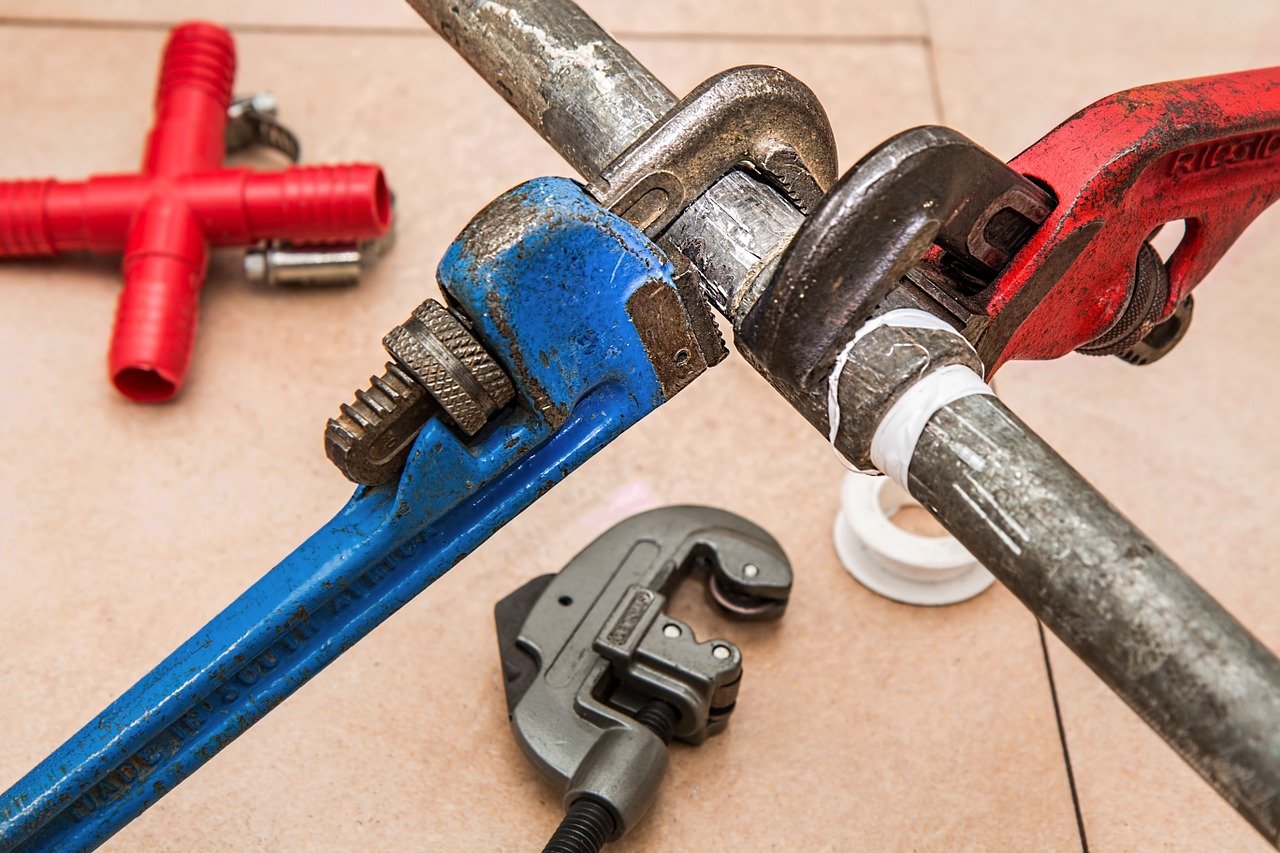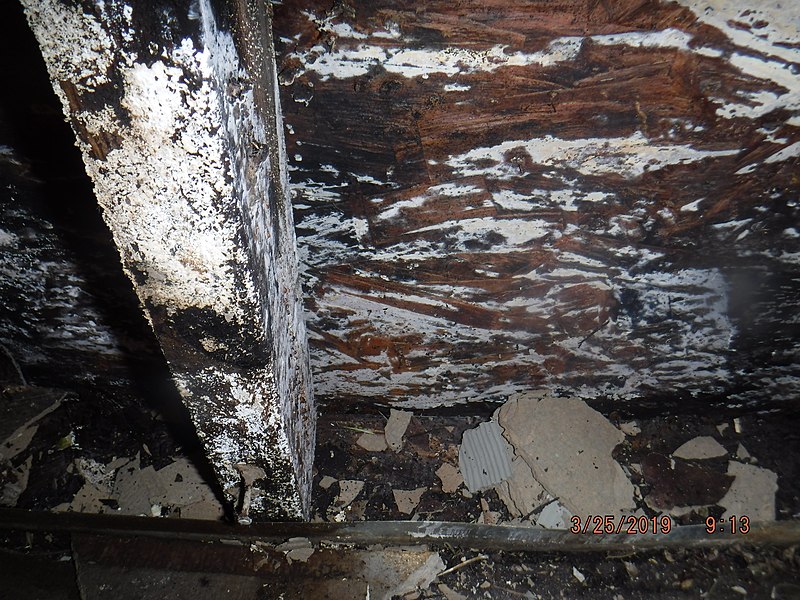
It’s every homeowner’s worst nightmare: discovering a leak in their basement. This nightmare can be exacerbated by not knowing how that leak even occurred.
Though, believe it or not, basement leaks are a common problem, and there are several reasons why they happen.
A Lack of Drainage Around Your Home’s Foundation
If you’ve noticed that water and rainfall pools around the foundation of your home before leaking into your basement, poor drainage can be to blame.
Often, this tends to be a common problem in older homes. In saying that, new homes can experience it, as well. The issue occurs when there isn’t proper drainage by your home to divert the water away.
You can solve this problem in the future by having a slope around the house that diverts it away and cleaning out your gutters regularly. However, if basement flooding or leaking has already happened, you may need to call in flood restoration experts to fix the damage.
Leaky Pipes
As much as external problems can cause leaks in your basement, your internal plumbing can also be blamed.
If you notice dampness behind a wall, then there’s every reason to believe you have a leaking pipe.
Always be on the lookout for blockages, cracks, and leaks in your pipes. When the cold weather sets in, it’s also a good idea to insulate them to stop them from bursting and flooding your basement.
Leaky Windows and Doors
Sure, leaky pipes are a common cause of a leaky basement, but it’s not the only leaky thing that can cause a mess.
Something as simple as cracked windows and doors in your basement can result in water seeping into your basement.
If you suspect that’s the problem, but you don’t know for sure, then wait for the next rain event. Take note of any cracks, holes, and sealing imperfections in stairwell doors and windows that appear wet. You can then jump into action by caulking the cracks and replacing any damaged materials.
At this time, it’s also a good idea to make sure that your property had adequate drainage to draw water away from your house in the first place.
High Humidity
If you notice that your basement seems leaky, but you can’t find any leaks, then consider if condensation might be to blame.
Sometimes, summer temperatures, poor ventilation, or coastal locations can lead to water buildup in your basement. Seeing water may lead you to believe there’s a leak, even if there isn’t.
By investing in a dehumidifier or installing venting, you may be able to stop that moisture from building up in the future.
Your Sump Pump Isn’t Adequate
A sump pump plays an incredibly important role. Still, it’s something you probably aren’t paying as much attention to as you should.
The job of your sump pump is to pump out groundwater under your house. Left to its own devices, the soil would soak up too much water, expand, and force its way into your basement.
However, you can’t rely on your sump pump to take care of the problem independently.
To avoid a leaky basement, you have to clean it and maintain it regularly. You also have to make sure you purchase a large enough or small enough pump for the job.
How to Identify a Leaky Basement
A basement leak may not be immediately apparent, especially if you don’t spend much time in that part of your home.
However, if you suspect a leak or excess moisture, you may notice a few signs.
Mold and Mildew
You may smell it before you see it – that musty odor that seems to present itself almost overnight. Mold and mildew are a sure sign that your basement has moisture. As mold and mildew can spread and cause health problems, it’s essential to identify the source of the problem before your basement becomes a genuine health hazard.
Stains & Dampness
Have you noticed any dark stains forming on your basement walls or ceiling? When you touch them, do they feel wet? You may have a leak, and it could become a severe problem if not acted upon. Fortunately, flood restoration experts can assist with returning your basement to its pre-leak status.
Quite often, the cause of dampness and stains is water absorption from groundwater seepage, rainfall, or leaky plumbing.
Stained Carpet
Nobody puts high-end carpet in their basement, especially given it’s not a primary living space. In saying that, no one wants the carpet they do have in there to stain.
If you notice that it has, and there’s no apparent reason for it, then consider whether your basement may have a leak. See if you notice more stains after heavy rainfall, then align it with any of the common causes of a leaky basement above.
Rust Stains
If you’ve noticed that metal items on your concrete basement floor are rusting, then question whether moisture or a leak could be to blame. Electrical boxes, the metal feet on furniture, and even nails positioned near the floor could all be exposed to water, resulting in rust stains.
White Mineral Deposit
Have you noticed a chalky white mineral deposit on your walls? This is efflorescence, and it’s a salt deposit caused by water on masonry surfaces.
Efflorescence is more commonly associated with high humidity levels rather than leaks.
Wood Damage
Are wood materials in your basement dark, stained, warped, cracked, or damp? Warped and stained wood can be a sign of water damage. On the other hand, warping and cracking can be caused by the pressure of water trying to enter your home, causing the flooring to break.
How Do I Prevent A Leaky Basement?
Proper Grading: Ensure the ground around your home slopes away from the foundation to prevent water from pooling near the basement walls.
Install Gutters and Downspouts: Direct rainwater away from the foundation by installing gutters and downspouts and keeping them clean and free of debris.
Extend Downspouts: Extend downspouts at least 5-10 feet away from the foundation to prevent water from seeping into the basement.
Seal Cracks and Gaps: Regularly inspect and seal any cracks or gaps in the foundation walls, windows, and doors to prevent water infiltration.
Install a Sump Pump: Install a sump pump with a backup power source to remove excess water from the basement in case of flooding.
Improve Drainage: Ensure proper drainage around the perimeter of the foundation by installing French drains or other drainage systems.
Inspect Basement Windows: Check basement windows for proper sealing and repair or replace any damaged seals or frames.
Maintain Landscaping: Avoid planting shrubs or trees too close to the foundation, as their roots can cause damage and create pathways for water to enter.
Waterproof Exterior Walls: Apply waterproofing coatings or membranes to the exterior walls to protect against moisture penetration.
Regular Maintenance: Conduct regular inspections and maintenance of your home’s exterior and basement to catch any potential issues early.
Top 5 Solutions For Dealing With A Leaky Basement
Identify the Source: Determine the source of the leak by inspecting the basement walls, floors, and windows for cracks, gaps, or signs of water infiltration.
Repair Cracks and Seals: Seal any cracks or gaps in the foundation walls, windows, or doors using appropriate waterproofing materials such as hydraulic cement or epoxy injection.
Install Interior Drainage Systems: If necessary, install interior drainage systems such as French drains or a perimeter drain tile system to redirect water away from the basement.
Improve Exterior Drainage: Address any issues with exterior drainage by regrading the soil, extending downspouts, or installing additional drainage systems.
Consider Professional Help: If the problem persists or if the damage is extensive, consider hiring a professional waterproofing contractor to assess the situation and recommend appropriate solutions.
What to Do When You Find a Leaky Basement:
Assess the Damage: Determine the extent of the water damage and take immediate steps to prevent further water infiltration or mold growth.
Remove Water: Use a wet/dry vacuum or pump to remove standing water from the basement as soon as possible.
Dry Out the Area: Use fans, dehumidifiers, and open windows to help dry out the basement and reduce moisture levels.
Address the Source: Identify and address the source of the leak, whether it’s a crack in the foundation, a faulty seal, or poor drainage.
Take Preventive Measures: Once the leak is repaired, take preventive measures to avoid future leaks by implementing the prevention tips mentioned above.
10 FAQs and Answers for Leaky Basements:
Q: What causes basement leaks? A: Basement leaks can be caused by various factors such as poor drainage, cracks in the foundation, faulty seals, or groundwater infiltration.
Q: How can I tell if my basement is leaking? A: Signs of a leaky basement include water stains, musty odors, mold growth, damp walls or floors, and visible cracks or gaps.
Q: Can I fix a leaky basement myself? A: Minor leaks may be fixable with DIY methods such as sealing cracks or improving drainage, but more extensive issues may require professional help.
Q: How much does it cost to repair a leaky basement? A: The cost of repairing a leaky basement can vary depending on the extent of the damage and the necessary repairs. It’s best to get multiple quotes from reputable contractors.
Q: Will homeowner’s insurance cover basement leaks? A: It depends on the cause of the leak and the terms of your insurance policy. Some policies may cover water damage caused by sudden and accidental events, while others may exclude certain types of water damage.
Q: How long does it take to fix a leaky basement? A: The time it takes to fix a leaky basement depends on the severity of the problem and the chosen repair method. Minor repairs may be completed in a day or two, while more extensive repairs could take longer.
Q: What are the signs of foundation damage? A: Signs of foundation damage include cracks in the foundation walls or floors, uneven or sagging floors, sticking doors or windows, and gaps between the walls and ceiling.
Q: Can I waterproof my basement from the inside? A: Yes, interior waterproofing methods such as installing drainage systems or applying waterproof coatings can help prevent water infiltration from the inside.
Q: How can I prevent mold growth in my basement? A: To prevent mold growth, address any moisture issues promptly, improve ventilation, use dehumidifiers, and consider waterproofing measures.
Q: Should I buy a house with a history of basement leaks? A: Purchasing a house with a history of basement leaks can be risky. It’s essential to thoroughly inspect the property, assess the extent of the damage, and consider the potential costs of repairs before making a decision.
No one wants to go down into their basement only to find that it’s leaking. Fortunately, there are many ways to notice a leak and straightforward methods to prevent it from happening in the future. In saying that, if you’ve experienced significant water damage from a basement flood, it can be worth calling flood restoration experts to lend a helping hand.


